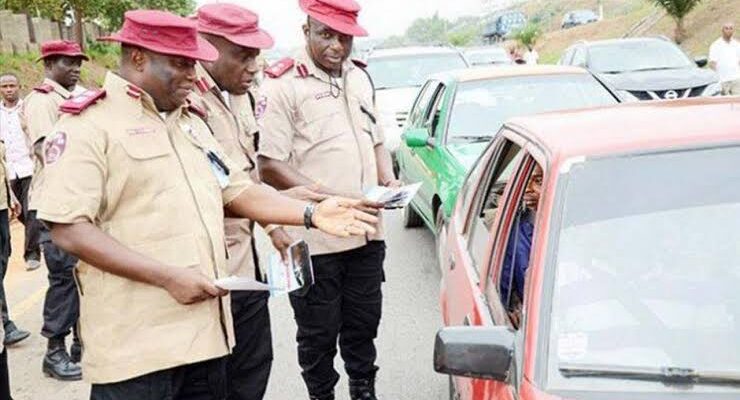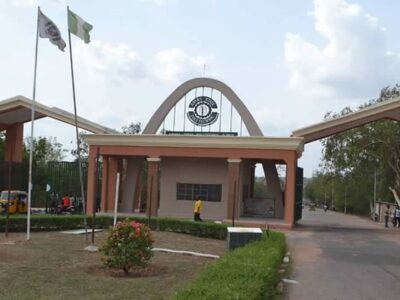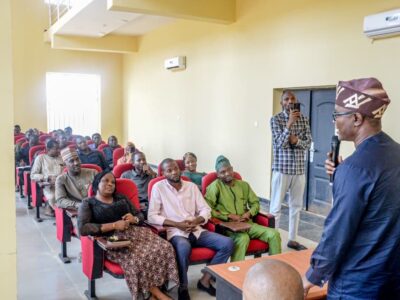By Olakunle Edun
The Court of Appeal holden at Asaba, yesterday, delivered a landmark judgment in Appeal No.CA/B/276/2019: Federal Road Safety Commission v. Darlington UgoEhikim Esq. The appeal was challenging a decision of the Federal High Court, Warri delivered by Hon. Justice E. Nwiteon the 25th day of January, 2019. Mr. Darlington UgoEhikim is a legal practitioner and a member of the NBA Warri branch. He was on his way to Court driving his car along Ajamimogha Road by Herismor House, Warri, Delta State when personnel of the FRSC harassed and obstructed his movement by flagging him down to check his vehicle particulars on the road in the morning of the 15th June, 2017.
Ajamimogha road is not a federal trunk road but a municipal road belonging to the Delta State Government.
The NBA Warri branch was informed of the incident and the branch directed Mr. Kunle Edun, who at the time, was the branch Vice Chairman and the Chairman of its Human Right Committee, to handle the matter.
It is settled law that the Constitution of the Federal Republic of Nigeria, (CFRN) 1999, as amended is the grundnorm of all laws in Nigeria and therefore, all laws must seek their validity and source from the grundnorm. The provisions of section 1(1) & (3) of the Constitution speaks volume of this and it provides that “This Constitution is supreme and its provisions shall have binding force on all authorities and persons throughout the Federal Republic of Nigeria.’
If any other law is inconsistent with the provisions of this Constitution, this Constitution shall prevail, and that other law shall to the extent of the inconsistency be void.”
A democratic society is governed by laws, and not by impunity or fiat of the executive or legislative arm of government. The Supreme Court in the case of A.G. Abia v A.G.Fed(2002) 6 NWLR (Pt.763) 264 held (per Kutiji, JSC) re-emphasized the superiority of the Constitution when it held that “The Constitution is the mirror upon which our actions or the actions of the National Assembly or any other public institution must be assessed. All actions must reflect the Constitution or else they will be considered as nullity. That being the case, we have to look and see if the said Constitution has made provisions on a particular subject-matter then, no other body can enlarge, alter and curtail the, provisions of the Constitution”.
The need for public officials and institutions to obey laws was emphasized in the case of Governor, Ebonyi State & Ors. v. Hon. Justice Isuama (2003) FWLR [PT. 169] 1210 @ 1227-1228,where this Honourable Court held that:“Obedience to the rule of law by all citizens but more particularly those who publicly took oath of office to protect and preserve the constitution is a desideratum to good governance and respect for the rule of law. In a democratic society, this is meant to be a norm; it is an apostasy for government to ignore the provisions of the law and the necessary rules made to regulate matters”.
In line with the principles of true federalism, the Constitution of the Federal Republic of Nigeria 1999, as amended provided for functions and responsibilities that are within the legislative competence of both the National Assembly and the States’ Houses of Assemblies, to wit: Exclusive Legislative List and Concurrent Legislative List. By virtue of the provisions of item 63 of Part 1 of the 2nd Schedule to the Constitution of the Federal Republic of Nigeria, 1999, as amended, the National Assembly is expressly authorized by the Constitution to make laws in respect of
FEDERAL TRUNK ROADS.
It is therefore, ultra vires and in excess of the legislative competence of the National Assembly to purportedly expand or extend the jurisdiction of the FederalRoad Safety Commission to include roads that are clearly not federal trunk roads or highways and thereby, operating on every State, municipal, township, village and street roads. Certainly, that could not have been the intention of the legislature while enacting item 63 of the Exclusive Legislative List, as it amounts to an unconstitutional incursion into the exclusive domain of the States’ Houses of Assembly.
It is also trite that matters that are in the Concurrent Legislative List are within the competence of both the National Assembly and States’ Houses of Assembly to legislate thereon. However, any matter that is not expressly mentioned in both the Exclusive and Concurrent Lists falls within the residual functions of the States’ Houses of Assembly and exclusive competence to make laws on. Section 4(2) of CFRN provides that “The National Assembly shall have the power to make laws for the peace, order and good government of the Federation or any part thereof with respect to any matter in the Exclusive Legislative List set out in Part 1 of the Second Schedule to this Constitution”
Tobi, JSC continuing in the A.G. Abia ‘s case (supra) @ 1330 paras 38-42, held that
Section 4(5) which provides for the doctrine of covering the field can only apply in a situation where the National Assembly exercises its law making power under section 4(2) of the Constitution. It will not apply in a situation where the National Assembly encroaches on the law making power of the House of Assembly of a State under section 4(7) of the Constitution.”Nowhere in the Concurrent List is traffic control and managementmentioned, which therefore, puts it as an item under the RESIDUAL FUNCTIONS of Houses of Assembly of the States, the power to make laws regarding traffic on any road other than federal trunk roads. Therefore, the provisions of the Federal Road Safety Commission Act, 2007(particularly section 30 thereof that defines “public road”) and its subsidiary legislation, the provisions of section 118 of the National Road Traffic Regulations, 2004 (which defines “highway”) to the extent that public roads and highways are defined to include all roads in States and Local governments are unconstitutional in the face of the clear provisions of sections 1(3), Section 4(7) and item 63 of Part 1 of the 2ndSchedule to the Constitution of the Federal Republic of Nigeria, 1999, forbidding incursion by the National Assembly into the exclusive constitutional law-making powers of the States’ Houses of Assembly.
Therefore, it is ultra vires the powers and jurisdiction of the FRSC to operate on roads other than federal roads; and to the extent that any provision of the Federal Road Safety (Establishment Act) 2007 and the section 118 of the National Road Traffic Regulations, 2004 permits the FRSC to operate on roads belonging toStates and Local Governments in Nigeria; it is ultra vires the powers and legislative authority of the National Assembly of Nigeria. In the case of F.R.N. v Chief AdebisiOlafisoye (2004-2007) Vol. 3 LLRN @ 1058, para. 45, the Supreme Court defined the term ultra viresas“An Act is ultra vires the National Assembly when it is enacted outside the legislative powers of the National Assembly.”
It is a notorious fact that personnel of the FRSC are hardly seen on federal highways, for reasons best known to them. It is also a fact that going by statistics most accidents occur on the federal highways because of un-checked violation of speed limit and other factors like bad roads. Whether the personnel of the FRSC are honestly performing their functions while on public roads and not actuated by other ulterior motives, is another issue; considering the allegations of widespread extortion of motorists by personnel of the FRSC, who may now seem to be in competition with other uniformed men in making lives more difficult for road users.
The Court of Appeal Judgment did not prohibit any form of collaboration with States’ traffic agencies in terms of workshop, staff training and similar exercises. The Judgment is a further call for true federalism in the country. It is a fact that many States have various uniformed security outfits set up by laws of the States’ Houses of Assembly. It is high time that we started looking once again at the continued relevance of a unitary policing arrangement in the face of the increasing security challenges in the Country, in a nation of more than 300 ethnic groupings, where most of the Policemen posted to a particular State do not understand and culture of the people in the State or familiar with the locality posted to.










Comments